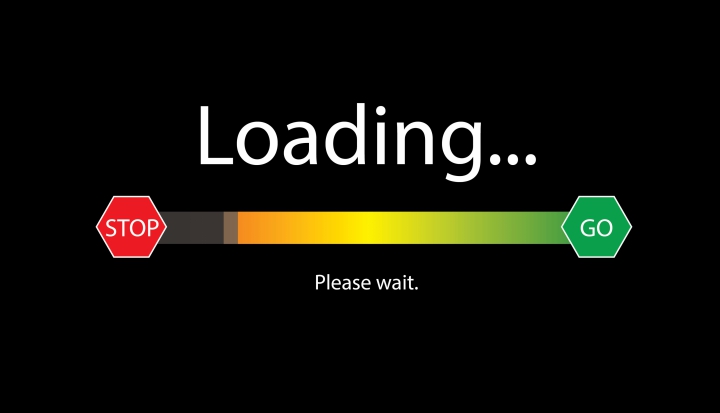I have an acquaintance who is currently experiencing homelessness. "Tom" (not his real name) often hangs out near a park that my family frequents, and so over the last year or so, my husband and I have established a relationship with him. During the last several months, Tom has been looking for a job: stocking shelves at a drug store, washing dishes at a restaurant, "Anything," he says, "before winter."
So, he had some help and he created and printed out a resume, carrying the resume with him to various establishments that might be hiring. "Are you hiring?"
"Yes."
"Could I have an application?"
"Apply online."
Fortunately, there is a nonprofit that Tom has connected with that will allow people experiencing extreme poverty to use computers–and the Internet–so that they can apply for jobs and other services. Which brings me to today.
As you are surfing the Internet today, you are likely to come across a symbol that looks like the ubiquitous "slow loading" wheel that's become synonymous with a website that just will not load. This is because a number of web-based companies like Netflix and Reddit are participating in a protest to maintain what is called "Net Neutrality." Despite the somewhat boring name, net neutrality simply means that large Internet providers, like Comcast, must provide equal access to websites–whether it's a huge company like Netflix, or a small organization like the one that helps Tom. According to the ACLU, if the rules surrounding net neutrality change, "Profits and corporate disfavor of controversial viewpoints or competing services could change both what you can see on the Internet and the quality of your connection."
For example, Comcast could charge companies an extra fee to make their websites load faster. This doesn't seem a big deal until the Washington Post pays the fees and the New York Times doesn't. Then the Post is easier for the consumer to access than the Times, and the Post becomes the news provider of choice. It also means that nonprofit organizations that operate on shoestring budgets and depend on their websites (either for revenue streams through donations, or as a primary way of distributing information) will be left in the "slow" lane of the Internet. That also means that individuals who depend upon those organizations could lose access to the Internet as well.
I've heard objections to Net Neutrality that essentially claim, "It's just the Internet." Many people think of the Internet as a nuisance or as a luxury.
But many of us live our lives on the Internet. It is how we communicate with friends and family across the country. It's where we store baby pictures. The Internet is not a luxury. It is the way we access information–events like Ferguson get reported primarily online–and that helps us to make decisions about who, for example, we will vote for come election time. And more and more, it's how we even go through the rudimentary process of applying for jobs. If we are going to live in a just and equal society, we need to be sure that access to the Internet is kept equal and just.
If you want a very nice and funny rundown of net neutrality, check out this lovely clip from John Oliver's new show "Last Week Tonight."













